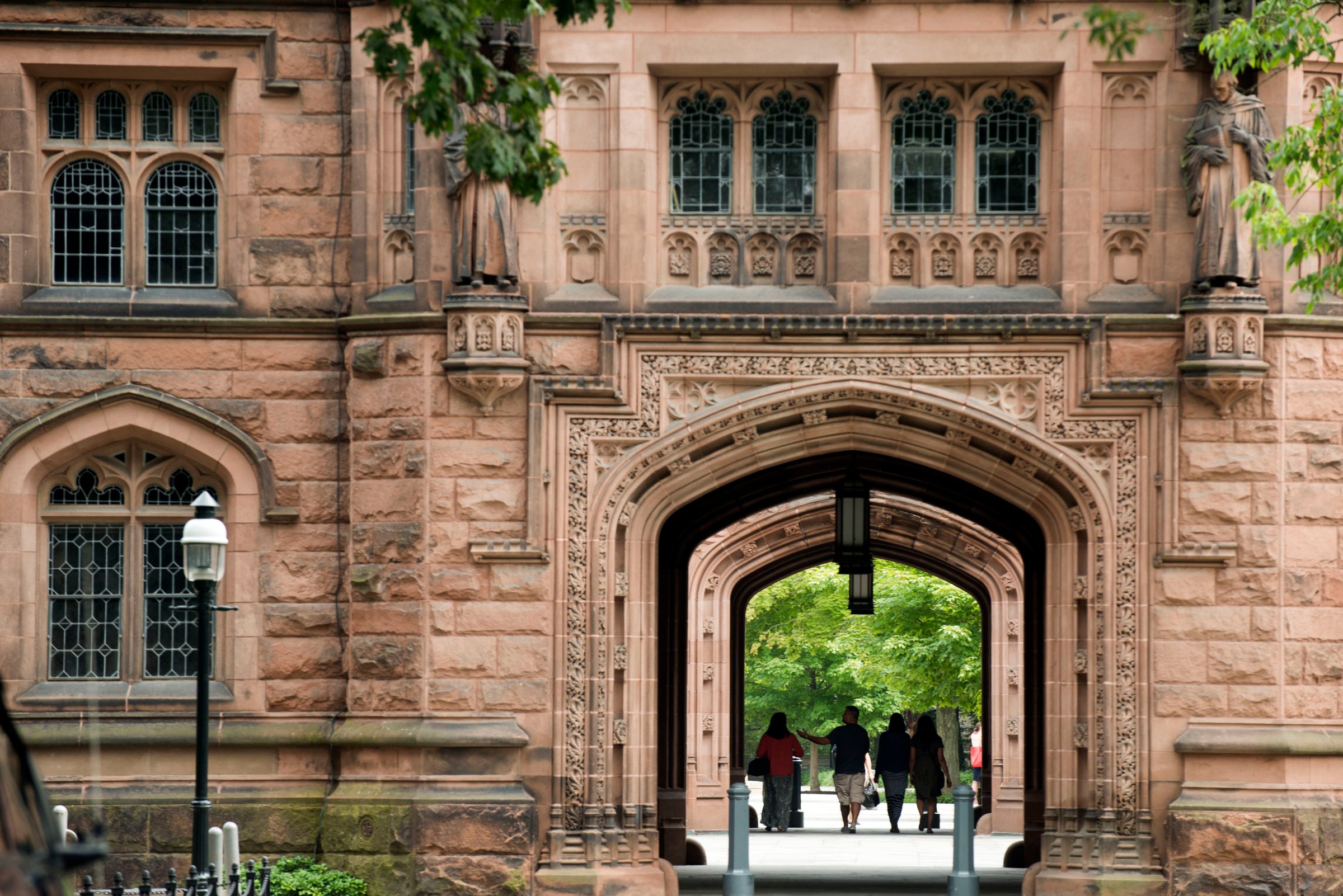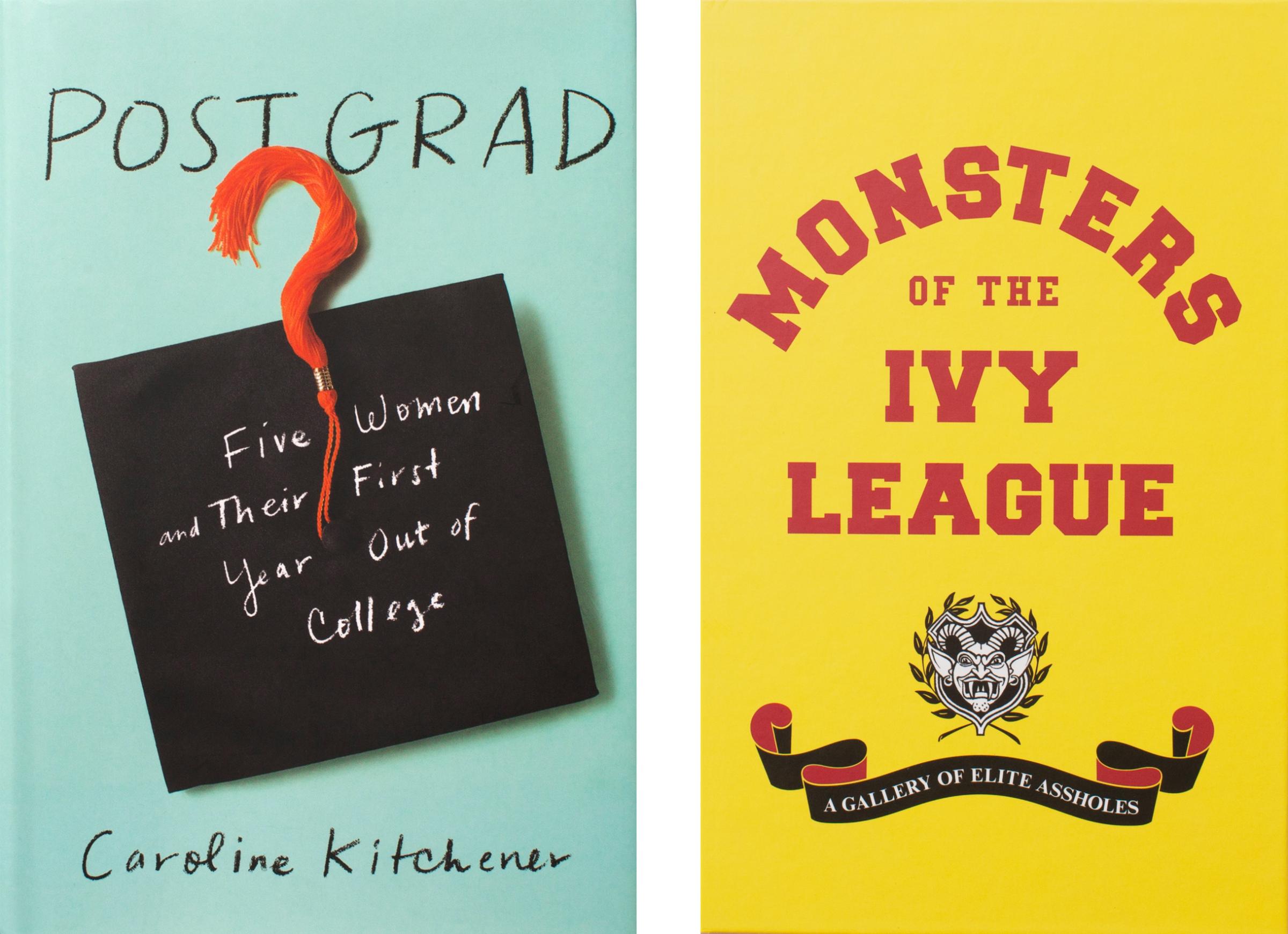
Denise is set on attending a top medical school. Michelle heads off to a jazz conservatory. Olivia wants to make a documentary film. Alex sets up a coding business with her brother. Finally, there’s Caroline, who wants to be a writer.
The five members of Princeton’s class of 2014 appear in Caroline Kitchener’s carefully reported, empathetic Post Grad, the latest book depicting real life after the world of privilege at one of America’s top colleges. Each one struggles. “The first year out of college is a hard year,” Kitchener writes. “For me it was the hardest year.”
Three of them seek out therapy or counseling. The fourth searches for a church. The fifth tries everything from Buddhism to hallucinogens to polyamory. Stripped of the comfort of college, they are hungry to be known and to know who they are. They explore an unstable terrain of anxiety, status, competition and shifting identity, making Post Grad a reported counterpart to the post-Stanford world that Tony Tulathimutte sent up in last year’s excellent novel, Private Citizens.

As Kitchener’s subjects begin careers, they find themselves most tested in their personal lives. She positions her book at the center of a disturbing reality: women graduate college today outperforming their male peers, and yet by the end of their first year in the workforce, they earn less. In college, Kitchener revolted at the advice of Susan Patton, the infamous “Princeton Mom,” who urged undergraduate women to make a search for a husband their first priority. A year removed from school, Kitchener is surprised to find herself subject to the gravitational pull of Patton’s retrograde warning. “Again and again, we had to make choices between professional and personal advancement and a relationship,” she writes. “What surprised me was how much we wanted to choose the relationship.”
Read more: The 25 best colleges for your money.
With Monsters of the Ivy League, Steve Radlauer and Ellis Weiner have written a listicle disguised as a book, the sort of thing you might give to Kitchener as a joke. The former Spy magazine staffers have yoked together 85 brief portraits of Ivy Leaguers they hate, forming an alternative history of schools famous for producing masters of the universe. They name names and crate their monsters into 40 boxes (labeled everything from “Anti-Semite” to “Wimp”). This genus of ne’er-do-wells can be further classified into species the authors can’t stand: liars, criminals, slaveholders, eugenicists and Republicans. Unfortunately, even the authors seem to tire of their picaresque before it finds its final destination. (“With Benjamin Wadsworth, we reach the Ws in our alphabetical listing. The end is in sight—only seven monsters to go after this one.”)
Monsters manages one good deed at least, exploring the many relationships between these northern institutions and the southern institution of slavery, something that, as President Trump (Penn ’68) might say, is getting recognized more and more today. But what Monsters gets wrong is the idea that graduates of these schools would rather not discuss their wayward former classmates. “No one, during a Whiffenpoof concert or at halftime of the Columbia-Brown game, reminisces about sociopathic alumni,” they write.
On the contrary! As someone who went to college outside of Boston, I know that the only thing an Ivy League postgrad likes to talk about more than where he went to college is a fellow graduate who, after four years on campus, has turned out to be something of a monster.
This appears in the April 24, 2017 issue of TIME.
More Must-Reads from TIME
- Inside Elon Musk’s War on Washington
- Meet the 2025 Women of the Year
- The Harsh Truth About Disability Inclusion
- Why Do More Young Adults Have Cancer?
- Colman Domingo Leads With Radical Love
- How to Get Better at Doing Things Alone
- Cecily Strong on Goober the Clown
- Column: The Rise of America’s Broligarchy
Write to Sam Jacobs at sam.jacobs@time.com